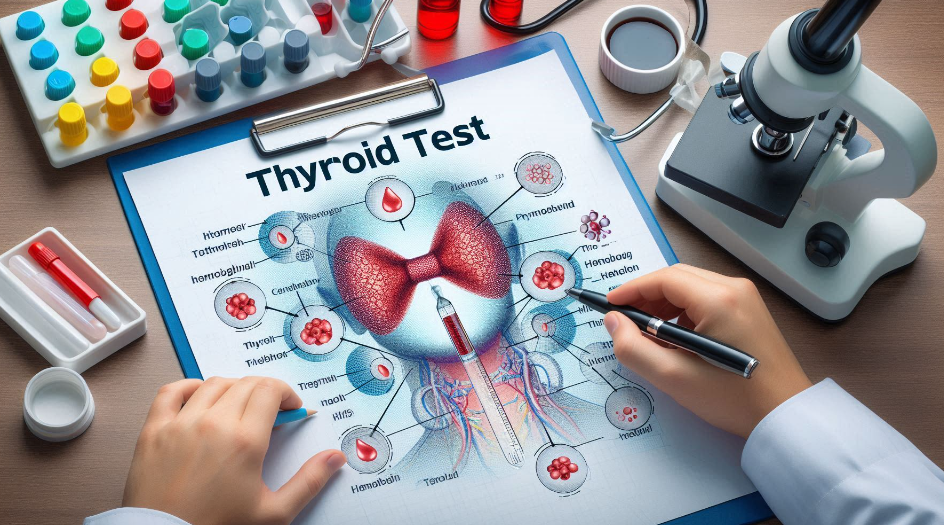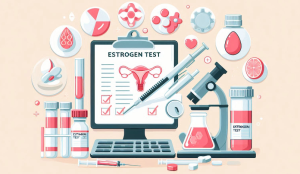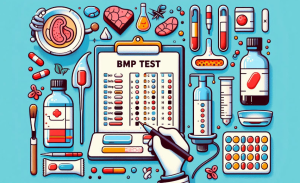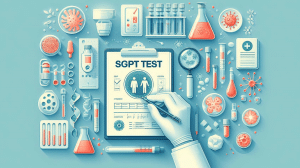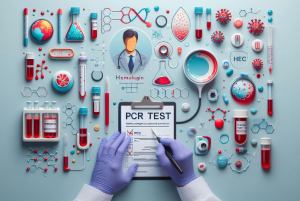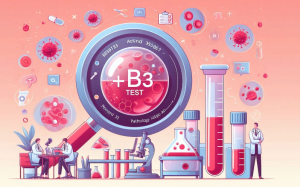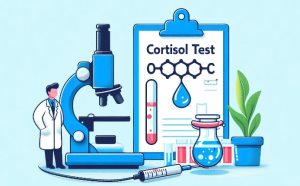What is a Thyroid Test?
A thyroid test is a collective term for various blood tests used to evaluate the function of your thyroid gland. The thyroid is a small, butterfly-shaped gland located in the front of your neck. It produces hormones that regulate many critical bodily functions, including metabolism, heart rate, body temperature, and growth and development. Thyroid tests help diagnose conditions like hypothyroidism (underactive thyroid) and hyperthyroidism (overactive thyroid), monitor thyroid hormone replacement therapy, and assess the effectiveness of thyroid-suppressing medication.
Why Do You Need a Thyroid Test?
Your doctor may recommend a thyroid test if you experience symptoms suggestive of a thyroid disorder, such as:
- Fatigue and weakness
- Unexplained weight gain or loss
- Changes in heart rate (fast or slow)
- Sensitivity to heat or cold
- Dry skin or hair loss
- Changes in bowel habits
- Mood swings or depression
- Goiter (enlarged thyroid gland)
Additionally, thyroid tests might be ordered if you have risk factors for thyroid disease, such as a family history of thyroid problems, autoimmune diseases, or previous thyroid surgery or radiation therapy.
What Does a Thyroid Test Measure?
Thyroid tests measure various hormones and substances in your blood, including:
- Thyroid-stimulating hormone (TSH): This hormone, produced by the pituitary gland in the brain, signals the thyroid to produce and release thyroid hormones.
- Thyroxine (T4): This is the main hormone produced by the thyroid gland.
- Triiodothyronine (T3): This is another thyroid hormone, though less abundant than T4.
- Thyroid antibodies: These antibodies indicate an autoimmune thyroid disorder, such as Hashimoto’s thyroiditis or Graves’ disease.
Preparing for the Test
Usually, no specific preparation is needed for a thyroid test. However:
- Fasting: Some labs might require fasting for a certain period before the test. Check with your healthcare provider beforehand.
- Medications: Certain medications, including biotin supplements and some thyroid medications, can interfere with the test results. Inform your doctor about all medications and supplements you are taking.
Understanding the Results
The normal ranges for thyroid hormone levels can vary depending on the lab and individual factors. Your doctor will interpret your test results based on your symptoms, medical history, and other relevant factors. Generally:
- High TSH and low T4: Indicate hypothyroidism (underactive thyroid)
- Low TSH and high T4: Suggest hyperthyroidism (overactive thyroid)
- Presence of thyroid antibodies: Indicates an autoimmune thyroid disorder.
Risk Factors and Prevention
Factors increasing the risk of thyroid disorders include:
- Family history: Thyroid problems can run in families.
- Age: The risk of thyroid disease increases with age, particularly in women over 60.
- Sex: Women are more likely to develop thyroid disorders than men.
- Autoimmune diseases: Certain autoimmune diseases, like type 1 diabetes and rheumatoid arthritis, increase the risk of thyroid problems.
- Pregnancy: Pregnancy and the postpartum period can trigger thyroid issues.
- Iodine deficiency or excess: Iodine is essential for thyroid hormone production, so either deficiency or excess can affect thyroid function.
- Radiation exposure: Exposure to radiation, especially in the head and neck area, can increase the risk of thyroid problems.
Prevention and management of thyroid disorders involve:
- Addressing underlying causes: Treating any underlying autoimmune diseases or other medical conditions contributing to thyroid problems.
- Medication: Thyroid hormone replacement medication is used to treat hypothyroidism.
- Radioactive iodine therapy or surgery: These treatments might be used for hyperthyroidism.
- Iodine supplementation or restriction: Depending on the cause of the thyroid problem, iodine intake might need to be adjusted.
Regular check-ups and following your healthcare provider’s advice are essential for managing thyroid disorders effectively.

 7351982473
7351982473